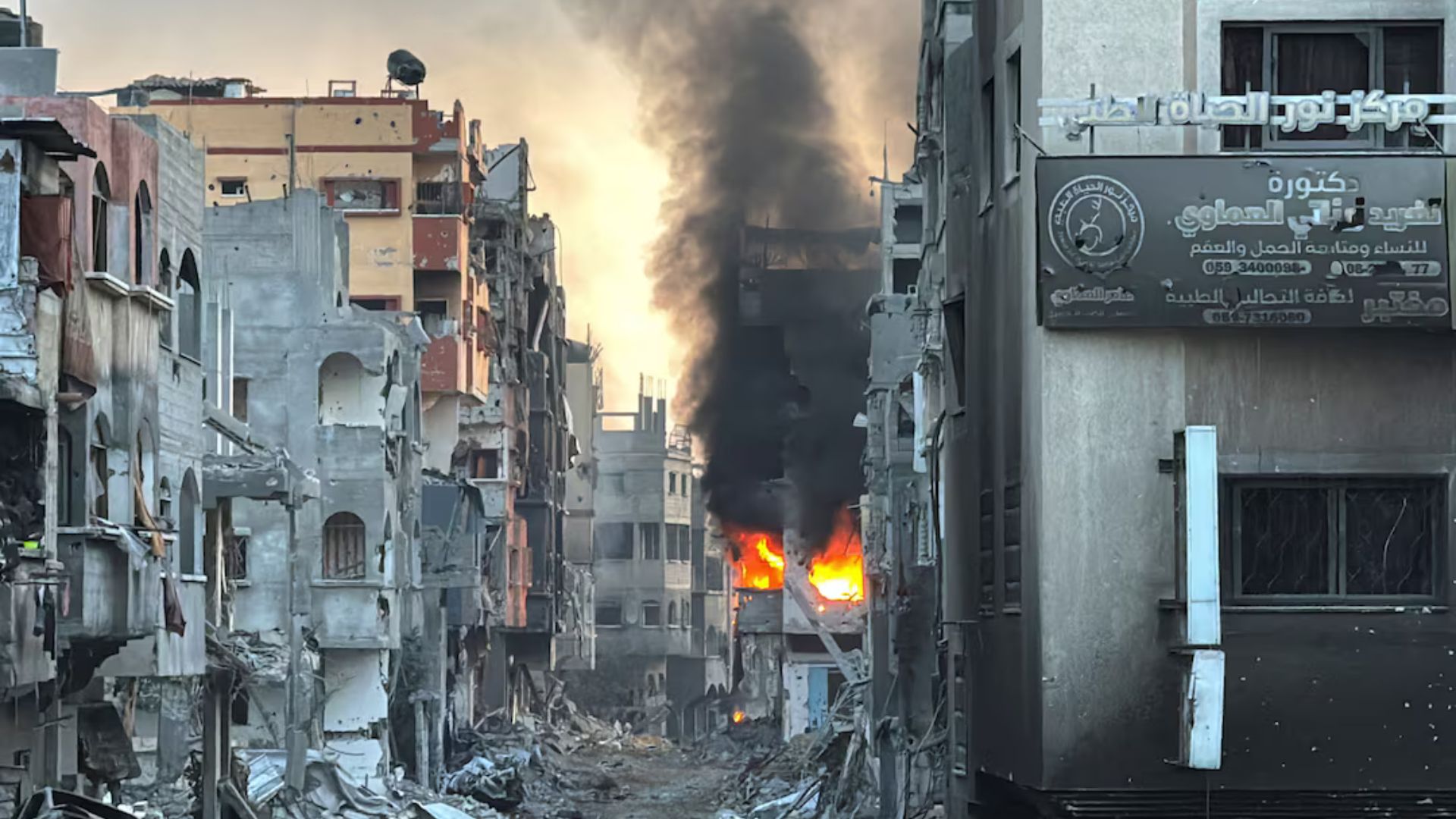(Reuters): A ceasefire agreement between Israel and Hamas to halt the 14-month-old conflict in Gaza is being mediated by the United States and Arab mediators. The urgency of the negotiations was underscored by reports that at least 20 Palestinians were killed by Israeli bombings on Wednesday.
There has been progress in reducing disagreements on the majority of the draft agreement's articles, according to Palestinian sources close to the negotiations. Though no specifics were given, they did point out that Israel had imposed criteria that Hamas had rejected.
There has been progress in reducing disagreements on the majority of the draft agreement's articles, according to Palestinian sources close to the negotiations. Though no specifics were given, they did point out that Israel had imposed criteria that Hamas had rejected.
Six individuals were killed in strikes across Gaza City, Nuseirat camp, and Rafah near the Egyptian border, while at least ten people were murdered at a house in northern Gaza's Beit Lahiya, according to medics. Four more persons were reportedly killed in an airstrike in Beit Hanoun.
At least ten individuals were killed in a strike in Jabalia later on Wednesday, according to medical personnel. Israeli military officials claimed to have targeted Hamas militants preparing an impending attack in Jabalia, although they did not immediately react on these instances.
Since October, Israeli forces have been present in the Jabalia camp, Beit Hanoun, and Beit Lahiya with the goal of interfering with the activities of Hamas terrorists. Israel disputes Palestinian accusations that it is trying to establish a buffer zone through "ethnic cleansing."

The Palestinian health ministry's death toll does not differentiate between combatants and civilians, making it more difficult to determine the exact number of dead, while Hamas has not revealed its own.
Israeli bombardment reportedly destroyed Al-Awda Hospital, injuring seven medical personnel and one patient, further exacerbating the situation in Jabalia. The already severe humanitarian situation in Gaza was further stretched by this event.
Citing recent rocket launches by Palestinian terrorists in the area, the Israeli army sent out additional evacuation orders to some inhabitants of the Bureij camp in central Gaza via direct messaging and social media. After these warnings, families started to leave the impacted districts.
With the backing of Egypt and Qatar, U.S. negotiators are attempting to reach a diplomatic accord before the conclusion of President Joe Biden's term next month. To close an agreement, U.S. and Israeli officials have stepped up their negotiations in recent weeks.
Israeli President Isaac Herzog visited President-elect Donald Trump's envoy for hostage matters, Adam Boehler, in Jerusalem. Trump has threatened dire repercussions if Hamas does not free the hostages before to his January 20 return to office.
In order to resolve the outstanding issues in the negotiations, CIA Director William Burns met with Qatari Prime Minister Sheikh Mohammed bin Abdulrahman Al Thani in Doha. Earlier this week, Israeli delegates also met in Doha.
Although both sides continue to hold firm positions, there are still expectations for a resolution after several rounds of fruitless negotiations over the previous year. While Hamas demands a troop departure prior to the release of hostages, Israel is adamant about maintaining a military presence in Gaza.
A Hamas-led offensive on villages in southern Israel marked the start of the conflict, resulting in 1,200 fatalities and more than 250 hostages. The Israeli military campaign that followed has resulted in the deaths of more than 45,000 Palestinians, the displacement of the majority of Gaza's 2.3 million inhabitants, and extensive destruction.
International condemnation of Israel's actions has resulted in its diplomatic isolation. There is still a great deal of suffering from the ongoing war, which emphasizes how urgently the situation needs to be resolved.




























